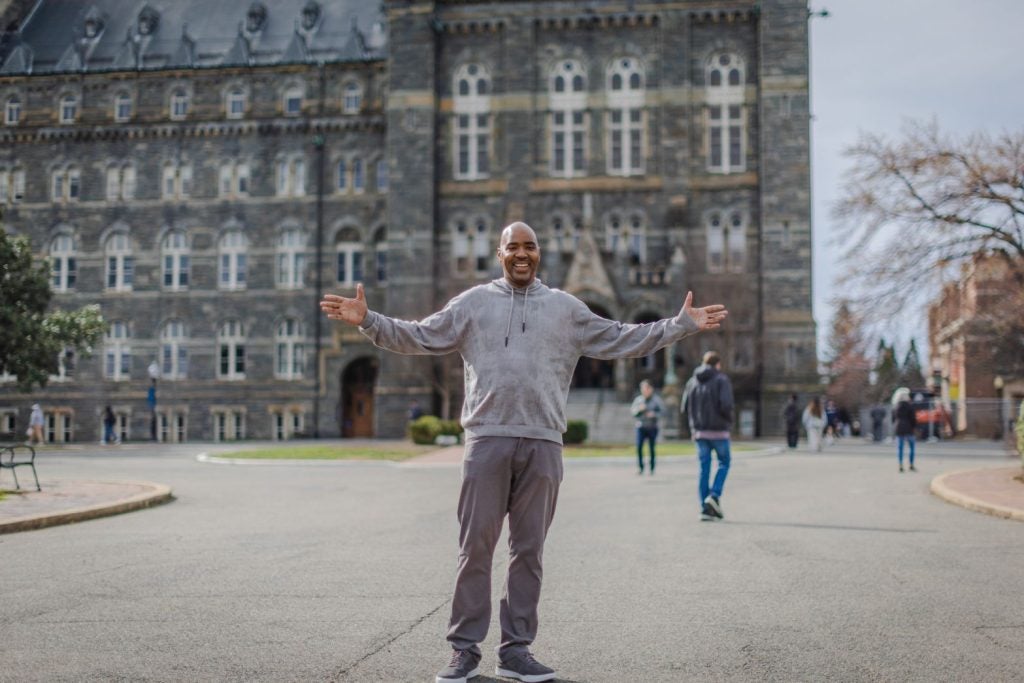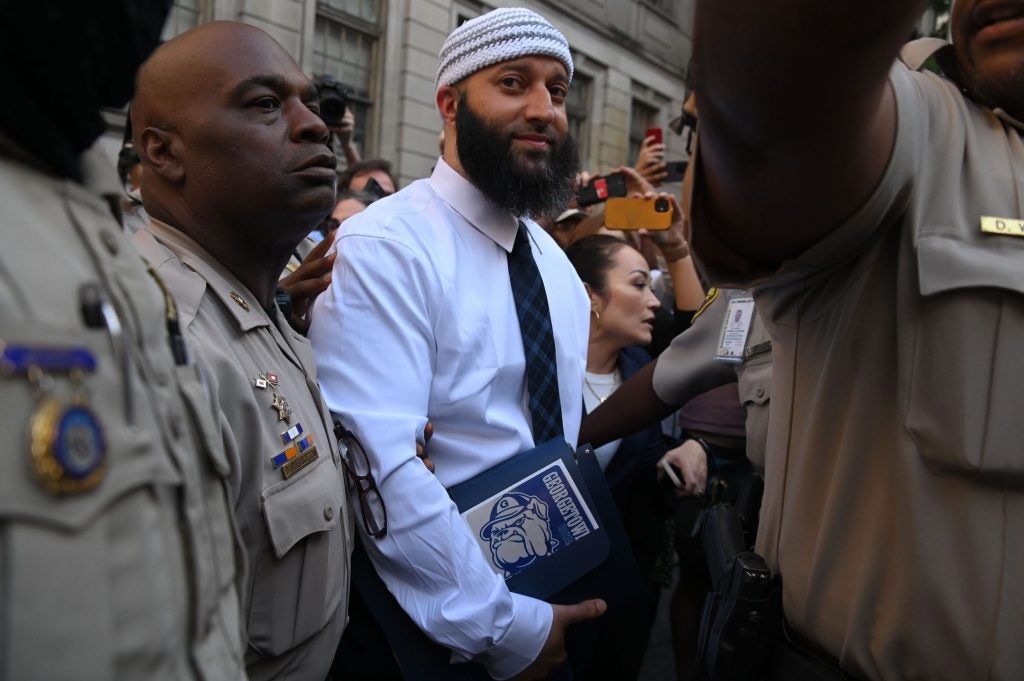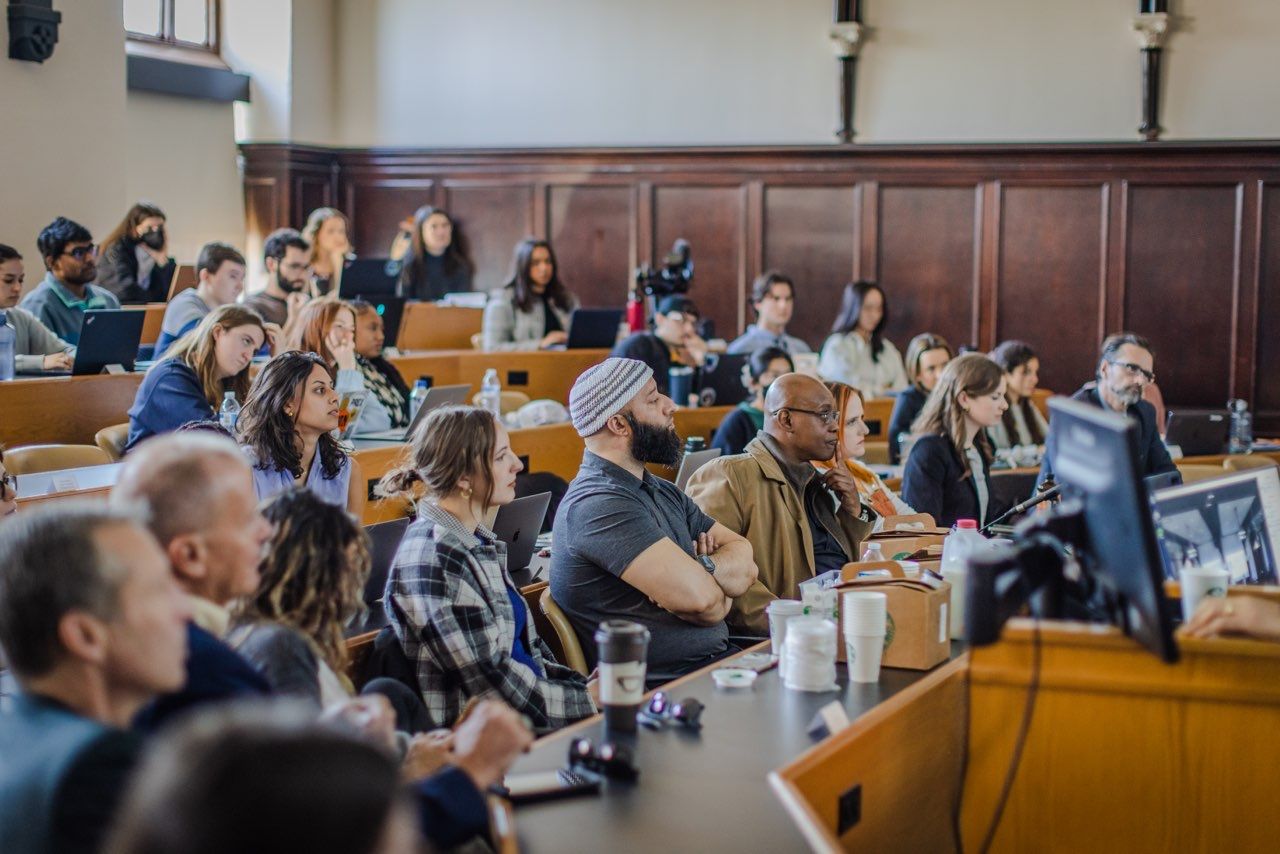McCourt School students use data analytics to help overturn wrongful convictions
Students in the McCourt School’s client-based capstone course have analyzed hundreds of decades-old case files to advance research on exoneration.
Since 2018, the Prisons and Justice Initiative (PJI) has provided Georgetown students the opportunity to engage in criminal justice and legal studies through its Making an Exoneree course and program. The highly-selective, five-credit course challenges undergraduate students to reinvestigate wrongful conviction cases and to produce documentaries and social media campaigns to advocate for exoneration and release. Marc Howard , director of PJI and professor of government and law, and co-instructor Martin Tankleff , an attorney and exoneree, regularly receive more than 100 applications from students for about 15 seats in the course.
The Making an Exoneree program has amassed a database of more than 300 cases for consideration over the past six years. In the spring of 2023, PJI partnered with graduate students in the McCourt School’s client-based capstone course to analyze the case files and provide guidance on data collection and organization for the future of the Making an Exoneree program. PJI previously partnered with McCourt School capstone students on program evaluation for its two re-entry programs: the Pivot Program and the MORCA-Georgetown Paralegal Program.
Five individuals have been exonerated or released since the Making an Exoneree program told their stories: Valentino Dixon, Eric Riddick, Keith Washington, Arlando “Tray” Jones III, and most recently, Kenneth Bond. The spring 2023 class is focusing on five cases involving Sarah Jo Pender, Billy Pennington, Jamie Snow, Hason Cleveland and John Kinsel, who have been incarcerated for a combined total of 98 years (and counting). The students will be presenting their final documentaries at an event on May 2 in Lohrfink Auditorium.

PJI receives hundreds of cases that are reviewed by a small group of staff and students, a labor that, while rewarding, is also emotionally grueling. Each case provides detailed information about the life and wrongful conviction of the potential exoneree, as well as that of the victim in the case.
“We learn so much that is upsetting and unknowable,” said Danny Tomares (MPP‘23). “There are counties and states where we don’t have any way of getting information and people whose stories will never be known.”
The McCourt students conduct extensive research and data analysis to assess different factors that impact the likelihood of a wrongful conviction, identifying commonalities or trends in PJI’s data and how it compares to national databases.
“Finding patterns and understanding how they break down by age, race and conviction date is important. The more you can disaggregate data, the more patterns will tell you,” said Shira Davidson (MPP’23).
Tomares, Davidson and their classmates were matched with PJI around the time that Georgetown hired Adnan Syed , the subject of the hit investigative podcast Serial. As a program associate for the Making an Exoneree program, Syed —who has extensive knowledge of the criminal legal system and legal defense and appeals strategy — researches and reviews cases, attends and speaks in the classroom, and advises students on their advocacy work.

“It is strange to be brushing up against something so relevant,” said Tomares. “Working with the staff at PJI, who are so close to a case that is being discussed nationally, is an incredible opportunity that grounds innocence work in the real people who are behind the text and numbers on a screen.”
“The McCourt students with whom we have worked are really dedicated and care about this work,” said Caitlin Chamberlain , an alumna of the McCourt School and deputy director of PJI. “Our partnership provides a great opportunity for them to experience exoneration work firsthand and potentially direct their career path in this field.” As a graduate student, Chamberlain participated in the client-based capstone course herself, working on a project with the Baltimore Police Department, which inspired her to pursue a career in criminal legal system work.
Building on the research conducted by the McCourt students, PJI hopes to increase its own understanding and scholarship of “a field where further research and collaboration are so important to bringing more justice to people who have been wrongfully convicted,” said Davidson.
- Tagged
- McCourt School News
- MPP
